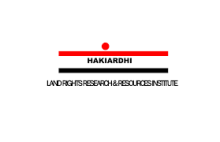Resource information
The study sought to determine the state of farms that belonged to the then National Agricultural Corporation (NAFCO), ranches that belong to the National Ranching Company (NAFCO) and land belonging to absentee landlords. Since any state is dynamic, this research report, then, is a socio-historical account of what has been happening within/out more than 543,604 hectares of ranch/farmland in the wake of the fall of nationalization and rise of privatization.
In the course of the study, the researchers found at that generally the process of privatizing farms and ranches has neither been timely nor cost-effective. Moreover, with a few exceptions, it has been marred by controversies that have elicited animosities between investors and small-scale producers on the one hand and between small-scale farmers and pastoralists on the other hand. In the case of the then Hanang Wheat Complex (HWC) and Dakawa Ranch where the field of this study was conducted, it was found that there is a dire need for land among the surrounding communities. However, the investors and political-cum-business elites who have acquired the largest chunk of the land that used to belong to NAFCO and NARCO are not utilizing it at the optimal level. Even in the case of HWC whereby two farms out of seven have been returned to wananchi, the process of redistribution remains incomplete four years since they were returned. Similarly, in the case of Dakawa ranch the land that was earmarked to be redistributed among wananchi has largely been allocated to „wananchi‟ other than wananchi residing within the area.
The study also found out that the process of monitoring investors‟ adherence to the contractual obligation as per privatization policy is not yet effective. In a number of significant cases the agency that is primarily responsible for this, that is, the Consolidated Holding Corporation (CHC), has not systematically assessed/monitored the farms since they were privatized and in the case where it has done so it has given lenient reprimand to investors who are not abiding to their contractual obligations. However, the Parliamentary Parastatal Organizations Accounts Committee (POAC) monitor these farms directly over and above its monitoring of CHC according to the authority invested in it. The effective of this new initiative is yet to be seen.
On the basis of these findings, the researchers submit the following recommendations that could be implemented on a short-term, medium-term or/and long-term basis depending on the context of a particular area so as to address land matters at the root rather than at the surface:
Resurvey disputed farms: A systematic survey of all disputed farms is undertaken, government bodies responsible for land survey to take the lead and community organizations as well as communities/citizens to monitor and evaluate the process from its inception. In regard to its practicality, cost-effective measures such as the use of simple Global Positioning System (GPS) hand device as it has been the case in the ongoing property and business formalization initiative may be used.
Reform land governance: A public performance tracking survey is undertaken, community organizations responsible for local governance to take the lead as and the national assembly (parliamentarians) as well as district councils (councillors) and village assemblies (villagers) to regularly/daily monitor and evaluate the implementation of the decentralization by devolution (D-by-D) policy – and its associated governance laws – at the central and local levels. In regard to its feasibility, success stories may be adopted from the ongoing Public Expenditure Tracking Surveys (PETS).
Review investors’ profiles: A participatory preview of the investors‟ profiles is undertaken, parliamentary committees responsible for sectoral investments to take the lead and the executive bodies responsible for investments as well as community organizations to independently and regularly monitor and evaluate investors‟ records in relation to their investment initiatives before, during and after their investment tenures. In regard to its reliability, systematic independent auditor may be commissioned.
Revolutionize information access: A mass movement to liberalize public information is undertaken, community organization responsible for mass media to take the lead and the legislature and judiciary to independently engage the executive to effect that change in its governance and legal regime. In regard to its practicality, the ongoing movement to enact the Right to Information Act the may be employed as a building block.


